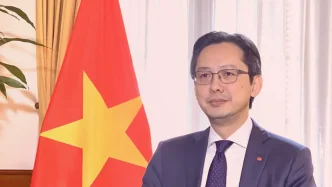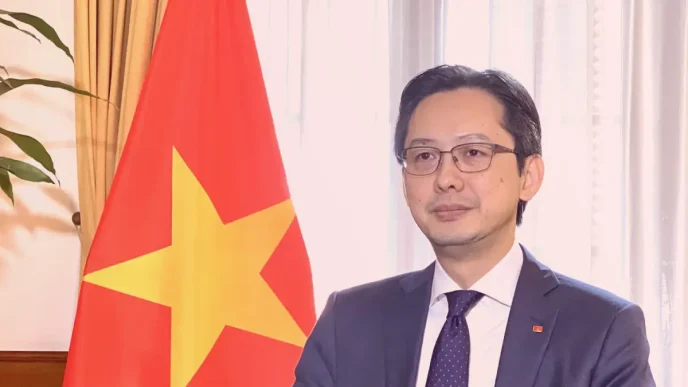The United Nations has issued its first-ever guidance on transnational repression, a growing global threat where governments silence critics abroad through surveillance, harassment, abductions, and violence. Released last week by the UN Human Rights Office, the landmark paper aims to raise awareness of this alarming trend, drawing on cases like the Philippines under Duterte, where journalists and lawyers faced deadly reprisals, and the misuse of spyware like NSO Group’s Pegasus and FinFisher to target dissidents. With authoritarian regimes and even some democracies implicated, the guidance urges urgent international action to protect victims, curb surveillance technologies, and ensure accountability for perpetrators.
Understanding Transnational Repression
Transnational repression refers to state-led efforts to suppress dissent beyond national borders, targeting activists, journalists, and exiles. Tactics include online harassment, hacking, enforced disappearances, physical assaults, and intimidation of family members. The UN’s guidance, supported by a 2024 report from the UN special rapporteur on freedom of opinion and expression, details how governments increasingly rely on sophisticated surveillance tools to monitor critics. NSO Group’s Pegasus spyware, which infiltrates smartphones to access messages, emails, and location data, and FinFisher, used to track activists, have been linked to abuses in countries like Bahrain, Ethiopia, and Saudi Arabia, according to Citizen Lab. These technologies, often marketed as counterterrorism tools, enable states to extend their reach with chilling precision.
Human Rights Watch reported in 2024 that transnational repression is frequently underreported or ignored, with host countries sometimes complicit. For instance, some nations fail to protect exiles or even facilitate foreign governments’ efforts through extradition or misuse of Interpol’s Red Notice system, as noted in a 2023 Freedom House report. Victims face significant barriers, including inadequate legal protections and limited access to remedies. The UN guidance emphasizes that host countries have a responsibility to safeguard those targeted, yet many lack the resources or political will to act, leaving dissidents vulnerable.
The phenomenon is not limited to authoritarian states. Democracies have been criticized for enabling repression by exporting surveillance technologies or failing to regulate their use. The UN paper cites cases where Western firms sold spyware to regimes with poor human rights records, exacerbating global abuses. This complex web of complicity underscores the need for a coordinated international response to address both the tactics and the tools of transnational repression.
Philippines: A Brutal Legacy of Repression
The Philippines under former President Rodrigo Duterte (2016–2022) serves as a stark case study of how domestic repression can spill across borders. During Duterte’s tenure, at least 34 journalists were killed, according to the Committee to Protect Journalists (CPJ), with the National Union of Journalists of the Philippines documenting over 150 incidents of harassment, threats, or violence against media workers. These attacks were often linked to reporting on Duterte’s controversial drug war, which killed thousands, per Human Rights Watch. Lawyers also faced severe persecution, with the National Union of Peoples’ Lawyers reporting 54 attorneys killed, many for defending activists or exposing government abuses.
This repression extended internationally, targeting Filipino dissidents in diaspora communities. Exiles in Canada, the Netherlands, and Australia reported surveillance, threats, and harassment, according to a 2022 Amnesty International report. In 2021, Amnesty’s Security Lab confirmed that a Filipino journalist in Europe was targeted with Pegasus spyware, with forensic analysis tracing the attack to servers in Manila. Such cases highlight how governments use advanced technology to silence critics abroad, often with impunity.
The Duterte era’s tactics were not isolated. The Philippines has a history of targeting journalists, but the scale of violence and the use of digital tools under Duterte marked a new intensity. The UN guidance points to such examples to illustrate the global nature of transnational repression, urging states to address both domestic and cross-border abuses to protect vulnerable groups like journalists and human rights defenders.
Surveillance Technology: A Global Threat
Advanced surveillance tools like NSO Group’s Pegasus and FinFisher are central to transnational repression. Pegasus, developed in Israel, can infiltrate devices undetected, extracting sensitive data like messages, emails, and location histories. FinFisher, used in countries like Bahrain and Ethiopia, enables governments to monitor communications and track individuals, per Citizen Lab. These tools are expensive—Pegasus licenses reportedly cost up to 500 million Indian Rupees (US$6 million) per target, based on Citizen Lab’s 2023 findings, with the conversion using an exchange rate of 83.5 INR to 1 USD as of June 26, 2025, via XE.com. The high cost reflects the sophistication of these systems, which have fueled a largely unregulated global surveillance industry.
Amnesty International and Citizen Lab have documented widespread abuses involving these technologies. In Saudi Arabia, Pegasus was linked to the surveillance of journalist Jamal Khashoggi before his 2018 murder. In Mexico, journalists investigating corruption were targeted with the same spyware, per a 2021 Forbidden City report. FinFisher has been used in Ethiopia to monitor opposition figures, undermining freedom of expression. The UN guidance calls for a moratorium on exporting such spyware, arguing that their misuse violates human rights. It also urges states to establish oversight mechanisms, noting that some democracies have failed to regulate sales to authoritarian regimes.
The unchecked spread of surveillance technology poses a broader challenge. Companies like NSO Group operate in a legal gray zone, with limited accountability for how their tools are used. The UN paper highlights the need for international standards to regulate the surveillance industry, including transparency in sales and restrictions on exports to states with poor human rights records. Without such measures, journalists and activists remain at risk of digital and physical harm.
Global Action and the Path to Accountability
The UN high commissioner for human rights, Volker Türk, warned in early 2025 of “egregious examples” of transnational repression, calling for a “zero-tolerance policy.” In 2024, dozens of countries, including Canada, Germany, Costa Rica, and Japan, issued a joint statement condemning the practice and pledging support for victims. The UN’s guidance offers concrete recommendations: governments must raise awareness, strengthen protections for those at risk, and establish mechanisms for remedies and reparations. It also stresses that states must refrain from enabling repression, such as through complicity in extraditions or misuse of Interpol’s Red Notice system, which Freedom House in 2023 noted has been exploited to target dissidents abroad.
At the current UN Human Rights Council session, states have an opportunity to address transnational repression through resolutions on journalist safety and civil society protections. Incorporating the issue into these resolutions could amplify the UN’s call for action, fostering coordinated prevention efforts. The guidance also urges states to collaborate on international mechanisms, such as shared intelligence on threats and secure channels for exiles to report abuses.
Challenges remain significant. Host countries often lack the capacity or will to protect targeted individuals, and some actively facilitate repression. For example, Thailand has faced criticism for deporting dissidents to face persecution in their home countries, per a 2024 Amnesty report. The UN guidance emphasizes that closing these protection gaps requires not only policy changes but also investment in legal aid, secure communication tools, and asylum processes for those at risk.
The broader implications of transnational repression are profound. It undermines freedom of expression, erodes trust in international systems like Interpol, and threatens the safety of diaspora communities. The UN’s call for a moratorium on spyware exports is a critical step, but it must be paired with enforcement mechanisms to hold both states and private companies accountable. The guidance also encourages civil society to play a role, urging NGOs to document cases and advocate for victims, as seen in the work of groups like CPJ and Freedom House.
As the international community grapples with this issue, the UN Human Rights Council session offers a pivotal moment to build momentum. Governments must move beyond condemnation to implement the UN’s recommendations, from strengthening protections to pursuing justice for victims. Without concerted global action, journalists, activists, and dissidents will remain vulnerable to the long reach of authoritarian regimes, with technology amplifying the threat at an unprecedented scale.















